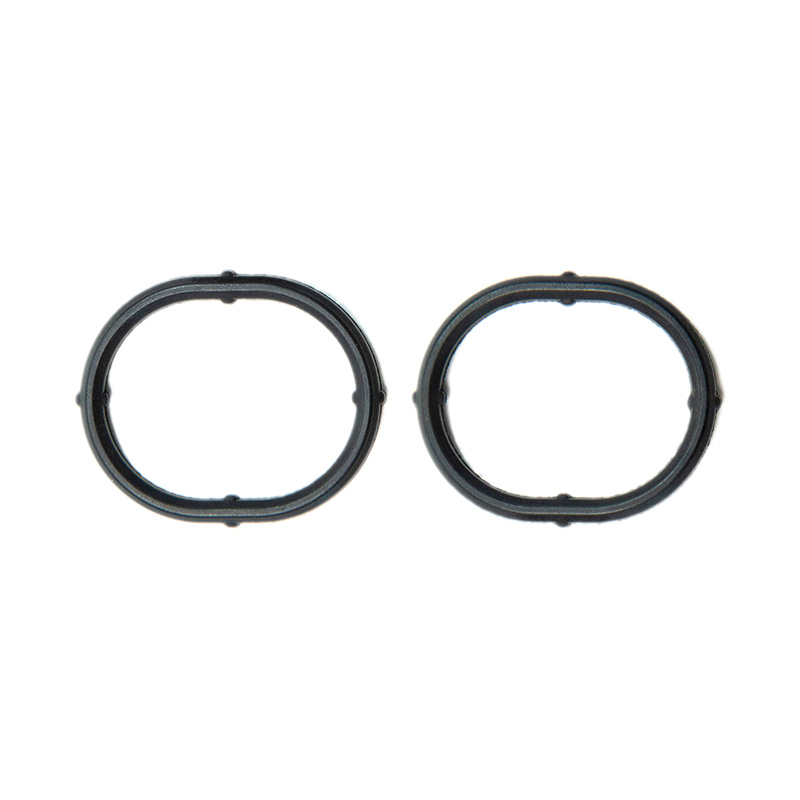+86-576-88024290
Search
19 09, 2025
Industry Updates
In modern industrial and mechanical applications, Special Shape Seal Rings play a crucial role in preventing leaks and ensuring reliable performance under various operating conditions. Selecting the right material for these seals is essential for maintaining durability, chemical resistance, and proper functionality. This article explores the materials used in Special Shape Seal Rings, their effects on performance, and considerations for high-pressure and high-temperature applications.
Special Shape Seal Rings can be manufactured from a variety of materials, each offering unique properties to suit specific applications. Common materials include:
Rubber (Nitrile, EPDM, Neoprene): Rubber is widely used for its flexibility, ease of installation, and moderate chemical resistance. Nitrile is suitable for oil and fuel systems, while EPDM excels in water, steam, and acidic environments.

Silicone: Known for its temperature tolerance and flexibility, silicone is often used in high-temperature applications and food-grade sealing systems.
PTFE (Polytetrafluoroethylene): PTFE provides outstanding chemical resistance, low friction, and high-temperature stability, making it ideal for aggressive chemical environments.
Fluororubber (FKM/Viton): Offers exceptional chemical and heat resistance, making it suitable for automotive and industrial hydraulic systems.
Polyurethane: Known for its wear resistance and durability, polyurethane seals are preferred in dynamic applications such as hydraulic pistons or rotating shafts.
By carefully choosing the appropriate material, engineers ensure that Special Shape Seal Rings provide reliable sealing performance across a wide range of conditions.
The choice of material directly affects the chemical resistance, temperature tolerance, and wear resistance of Special Shape Seal Rings. For instance, rubber seals like EPDM resist water, steam, and mild acids but may degrade in oils or solvents. Fluororubber and PTFE, on the other hand, can withstand aggressive chemicals without losing integrity.
Temperature tolerance varies significantly between materials. Silicone and PTFE can handle high temperatures, often exceeding 200°C, while standard rubber types are typically limited to around 100–120°C. Wear resistance is another critical factor, especially in dynamic applications. Polyurethane and fluororubber offer wear resistance, while silicone, although flexible, may wear faster under frictional loads.
Yes, Special Shape Seal Rings are designed to operate in high-pressure and high-temperature environments when the appropriate material is selected. High-pressure systems require materials that can maintain elasticity and prevent extrusion under load, such as polyurethane or fluororubber. High-temperature applications benefit from silicone, PTFE, or specialty fluoropolymers, which retain dimensional stability and sealing performance under thermal stress.
Design considerations, including cross-sectional shape, size, and installation method, also influence the ability of Special Shape Seal Rings to perform in demanding conditions. Proper design and material selection together ensure reliable operation in challenging environments.
The properties of the material—such as hardness, elasticity, chemical compatibility, and temperature resistance—directly determine the effectiveness of Special Shape Seal Rings. A material that is too soft may deform excessively, causing leakage, while a material that is too hard may not conform to the sealing surface, reducing contact area. Chemical resistance ensures that the seal does not swell, crack, or degrade when exposed to fluids. Thermal stability prevents the seal from shrinking, warping, or losing elasticity at elevated temperatures.
By understanding how material properties interact with operating conditions, engineers can select Special Shape Seal Rings that maintain consistent sealing performance, reduce maintenance needs, and prolong equipment life.
Special Shape Seal Rings are essential components in modern mechanical and industrial systems, providing reliable sealing in both static and dynamic applications. Understanding the materials used, their chemical resistance, temperature tolerance, wear properties, and overall impact on sealing performance is critical for selecting the right seal for each application. With proper material selection and design, Special Shape Seal Rings ensure durability, efficiency, and safety in demanding operational environments.